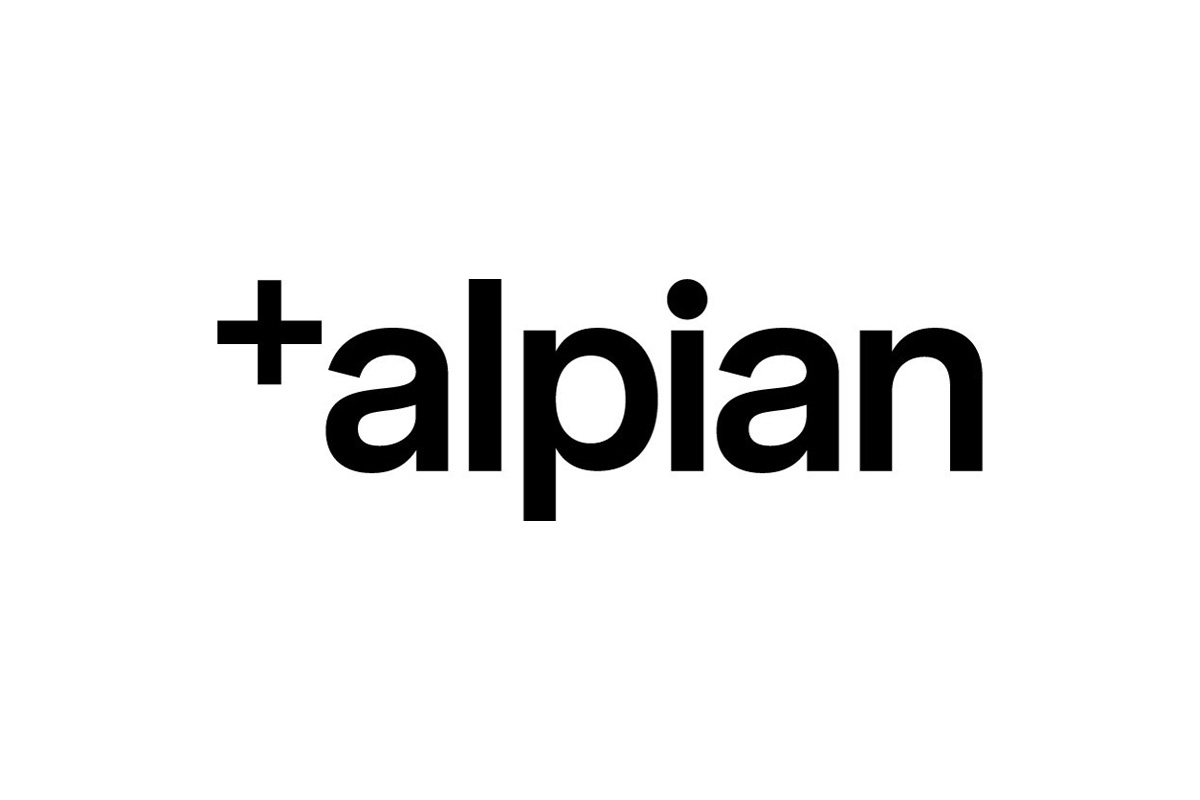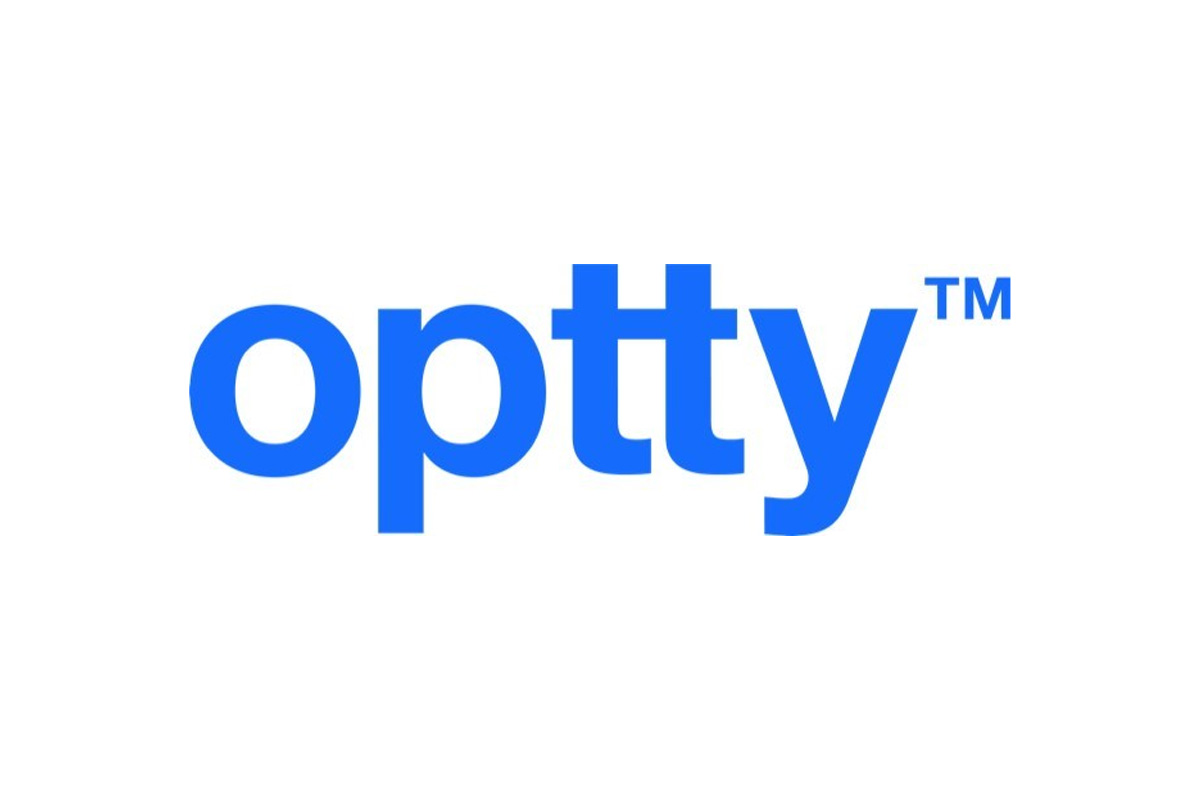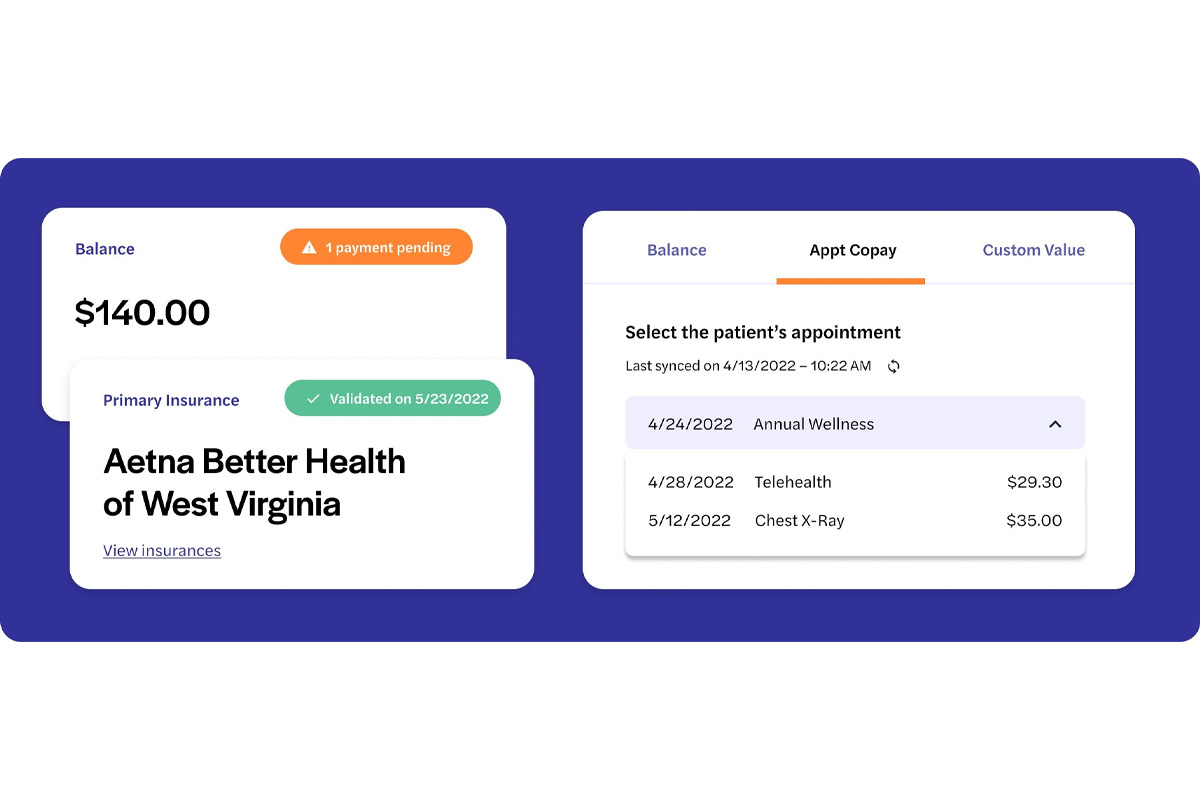Fintech
New Cambodian Bank Oriental Bank Plc Selects Global Paytech Provider BPC To Power Digital Banking Experience

Oriental Bank Plc., a new bank in Cambodia with a digital-first strategy, announced that it has chosen global payment provider BPC to power its digital banking experiences.
Cambodia has over $22 billion in currency circulation and digital literacy is on the rise. The UN Economic and Social Commission for Asia and Pacific reports that 15.6 per cent of the population made or received digital payments during 2019, demonstrating the rapid increase in demands for digital infrastructure.
The Southeast Asian nation’s newest commercial bank aims to capture a sizeable market share of tech-savvy consumers as well as those who prefer brick-and-mortar banking experiences. This strategy will see Oriental Bank Plc. engaging in a 60 per cent digital – 40 per cent conventional banking approach.
BPC SmartVista’s platform will be used to power the digital banking experience from Know Your Customer onboarding, deposit account opening, and funds transfers. It will also be used to power seamless and secure end-to-end payment experiences, including QR codes, card issuing, digital loan applications, and other self-service banking channels such as ATM Driving Services.
Datuk Phan Ying Tong, the Founder and MD of Oriental Bank Plc., said: “Oriental Bank is blending technology and the human touch to ensure that we can reach out to customers no matter what touchpoint they use. We selected BPC for their extensive understanding of the local market and their competitive speed in delivering a new bank from the ground up. With BPC, we are relying on a strong local partner that will embrace growth and help us scale.”
With the aim of delivering highly reliable, customer-centric financial products to Cambodia, Oriental Bank Plc. was attracted to the ease of partnering with BPC’s next-generation P2P services that form part of the bank’s ecosystem, including API connections to third parties for instant payment. It was also attracted to BPC’s capability to extend the ecosystem further with added value services as the bank grows.
Terry Paleologos, Managing Director APAC at BPC, commented: “BPC has a strong market share and presence in Cambodia with an established local team who are fully equipped to support clients and partners. The demand for a digital lifestyle is palpable; hence we see major transformation projects. However, building a neobank from the ground up is an even more exciting initiative as the foundation will bring digital-first experience to clients who demand it.” He also added: “We are confident that with this partnership, both Oriental Bank and BPC are paving the path towards greatness, together.”
For over 25 years, BPC has been at the forefront of the digital revolution, enabling over 350 financial institutions in over 100 countries with state-of-the-art banking and payment solutions. Oriental Bank Plc. is Cambodia’s newest commercial bank, aiming to fast-track the Cambodian financial service-scape into the digital era.
Fintech
Fintech Pulse: Your Daily Industry Brief – April 29, 2025 – Thunes, AI Agents, Railsr & Equals, Surfin, UK Fintech, Visa

Good morning, Fintech insiders! Welcome to Fintech Pulse, your daily op-ed–style briefing on the stories shaping our industry. Today we cover six major developments—from blockbuster funding rounds to cutting-edge AI trends, high-profile mergers, and education initiatives—alongside incisive commentary to help you stay ahead of the curve.
1. Thunes Secures US$150 M Series D to Fuel U.S. Expansion
Key News
Cross-border payments innovator Thunes has closed a US$150 million Series D round led by Apis Partners and Vitruvian Partners, marking its largest ever capital raise. The Singapore-based fintech, which connects traditional banking rails to digital wallets in over 130 countries, will deploy the proceeds to expand its Direct Global Network and deepen its newly-licensed U.S. operations across all 50 states. CEO Floris de Kort highlighted Thunes’ US$150 million revenue run-rate and positive EBITDA as proof that rapid growth and financial discipline can go hand in hand.
Analysis & Opinion
Thunes’ ability to attract blue-chip growth capital underscores a broader investor appetite for cross-border payment platforms that tackle real-world inefficiencies. With remittance corridors booming and digital wallets proliferating, Thunes is well-positioned to capture market share in the U.S., where instant, low-cost transfers are still nascent. Yet, scaling a global network poses regulatory and compliance challenges; the true test will be executing seamless integrations with U.S. banks and digital wallets without sacrificing speed or reliability. If Thunes can replicate its international success domestically, it could trigger a new wave of consolidation among smaller regional players.
Source: FinTech Magazine
2. Forbes Spotlights AI Agents for Investment Research
Key News
In a thought-provoking piece, Forbes’ Jeff Kauflin identifies “AI agents” as fintech’s next frontier for deep investment research. Leading platforms—from trading app Robinhood to nimble NYC startups—are deploying autonomous AI agents that process vast datasets (SEC filings, earnings calls, macro reports) to generate actionable insights faster than human analysts. These agents can simulate investment theses, adjust portfolios in real time, and even draft regulatory filings.
Analysis & Opinion
The shift toward autonomous AI in asset management is inevitable, but it raises profound questions about accountability and transparency. While AI agents promise cost efficiencies and 24/7 research capabilities, financial firms must guard against overreliance on black-box models. Rigorous backtesting, explainable-AI frameworks, and human-in-the-loop oversight will be essential to mitigate model drift and guard against false signals—especially in volatile markets. Firms that navigate this balance effectively will gain an edge, but regulators are watching closely and may soon demand disclosures on algorithmic decision-making.
Source: Forbes
3. Railsr and Equals Merge in £283 M Deal to Forge Embedded Finance Powerhouse
Key News
UK-based Railsr (formerly Railsbank) has agreed to acquire Equals Group in an all-cash £283 million transaction, creating one of Europe’s largest embedded finance platforms. Under the terms, Equals shareholders will receive 140 pence per share (135 pence cash plus a 5 pence special dividend). The deal—expected to close in Q2 2025—brings together Railsr’s BaaS/CaaS capabilities (virtual cards, balance holding, open banking) with Equals’ strengths in cross-border payments (FairFX, CardOneMoney). Leadership teams from both firms, including Ian Strafford-Taylor (CEO, Equals) and Philippe Morel (CEO, Railsr), will spearhead the integration.
Analysis & Opinion
This merger signals a coming era of embedded finance consolidation. By pooling resources, Railsr-Equals will offer end-to-end solutions—from issuing payment instruments to facilitating international transactions—under one roof. Cross-selling opportunities abound, but integration risks loom large: aligning technology stacks, unifying compliance frameworks, and retaining client trust will be critical. Success here could set a new M&A benchmark in embedded finance, prompting VCs and strategic investors to reevaluate other mid-market fintechs as future roll-up targets.
Source: FinTech Magazine
4. Singapore’s Surfin Meta Digital Technologies Nets US$26.5 M
Key News
Surfin Meta Digital Technologies, a Singapore-based fintech serving the underbanked, has closed US$26.5 million in a fresh round led by Insignia Ventures Partners, with participation from Woori Venture Partners, Washington University in St. Louis, and Phillip Private Equity. Founded by Dr Yanan Wu, Surfin’s platform spans consumer lending, payments, and wealth management services for emerging markets. Proceeds will fuel expansion into new geographies and bolster R&D for intelligent financial products.
Analysis & Opinion
Surfin’s focus on underserved segments taps a massive, often overlooked market. As interest in financial inclusion intensifies, platforms like Surfin that marry tailored lending with digital onboarding can leapfrog legacy institutions. Yet competition is heating up, with incumbents and neobanks eyeing similar demographics. Surfin must differentiate via superior credit-scoring algorithms and localized partnerships. The level of institutional investor support here suggests confidence in its unit economics—but execution will hinge on balancing rapid scale-up against credit risk management.
Source: FinSMEs
5. Inside the Rapid Rise of UK Fintech
Key News
The UK’s fintech workforce now exceeds 82,000, with projections to surpass 100,000 within two years—a testament to a sector that has thrived on regulatory support, talent density, and customer demand for digital services. From London-based challengers (Monzo, Starling) to BaaS platforms and insurtechs, the ecosystem has become a global benchmark.
Analysis & Opinion
The UK’s ability to cultivate fintech lies in its “sandboxes,” progressive open-banking mandates, and close ties between HM Treasury and the FCA. Yet Brexit uncertainties and visa restrictions pose lingering talent challenges. Firms must continue to advocate for flexible immigration policies and invest in domestic upskilling to sustain momentum. Moreover, the next phase will emphasize AI-driven personalization, regtech, and cross-sector collaborations (e.g., healthtech + fintech). The UK is at a crossroads: maintain its edge by adapting to emerging technologies, or risk ceding ground to agile hubs in Asia and North America.
Source: Yahoo Finance
6. University of Notre Dame and Visa Launch Fintech Foundations Program
Key News
The Meruelo Family Center for Career Development at the University of Notre Dame, in partnership with Visa, has introduced the inaugural Visa Fintech Foundations Program—a six-week immersive for undergraduates. Covering fundamentals of banking, digital currencies, decentralized finance, and industry career pathways, the pilot drew over 40 students within 48 hours of launch. Industry experts from Visa led weekly sessions, one-on-one consultations, and a capstone project. The program will run again in Fall 2025, with plans to expand to other universities.
Analysis & Opinion
As fintech reshapes finance, academia-industry alliances like this are vital to bridge the skills gap. Visa’s investment signals a recognition that tomorrow’s fintech leaders must understand both technology and regulatory nuances. Programs of this sort create a talent pipeline and foster brand affinity—benefitting both students and sponsors. The broader question: can similar models scale across disciplines (insurtech, regtech, wealthtech) and institutions? If so, we may see a new standard for fintech curricula, combining theory, practice, and peer networking.
Source: University of Notre Dame
The post Fintech Pulse: Your Daily Industry Brief – April 29, 2025 – Thunes, AI Agents, Railsr & Equals, Surfin, UK Fintech, Visa appeared first on News, Events, Advertising Options.
Fintech
Fintech Pulse: Your Daily Industry Brief – April 25, 2025 | Nubank, Fiserv, LendMN, Clara, Alternative Payments

Welcome to today’s Fintech Pulse, your op-ed–style deep dive into the developments reshaping financial technology. In this edition, we examine five pivotal stories—from strategic regulatory wins and M&A moves to capital infusions empowering underserved markets. Our analysis delivers not just the facts, but the insights driving tomorrow’s fintech landscape.
1. Nubank Secures Mexican Banking License
News Summary
Brazil’s digital banking powerhouse Nubank has cleared a major regulatory hurdle in Mexico, obtaining initial approval from the National Banking and Securities Commission to transition from a payments-focused issuer to a full-service bank. This milestone permits Nubank to broaden its product suite—adding salary deposits, expanded savings offerings, and potentially consumer loans—currently restricted under its existing license. With over 10 million customers in Mexico, the move cements Nubank’s regional footprint.
Source: Reuters
Analysis & Commentary
Nubank’s license approval represents a calculated shift from neo-banking into universal banking, mirroring strategies by other challengers seeking diversified revenue streams. By evolving into a full bank, Nubank can integrate deposit-taking operations with cross-sell opportunities for credit, insurance, and investment products. This vertical integration not only boosts customer lifetime value but also insulates against margin compression in transactional services.
Industry watchers should note that Nubank’s success could spur incumbents to accelerate digital transformation, potentially igniting a wave of partnerships or counter-moves across Latin America’s top banking markets.
2. Fiserv to Acquire Money Money in Brazil
News Summary
U.S. payments stalwart Fiserv has inked a definitive agreement to acquire Brazilian fintech Money Money Serviços Financeiros, aiming to enhance its suite of merchant services for Latin America’s SMB segment. Pending approval by Brazilian regulators, the deal is slated to close in Q2 2025. Through this acquisition, Fiserv gains localized technology, a built-in merchant portfolio, and foothold in one of the fastest-growing digital payments markets.
Source: Electronic Payments International
Analysis & Commentary
The Fiserv–Money Money merger exemplifies established fintech firms’ appetite for inorganic growth in emerging markets. Rather than building solutions from scratch, acquiring a homegrown player accelerates time-to-market, leverages regulatory know-how, and taps existing customer trust.
Strategically, Fiserv’s playbook highlights three key benefits: 1) Market entry at scale, 2) Technology integration with minimal friction, and 3) Enhanced local relationships—factors critical in regions where regulatory complexity and cultural nuances can hamper pure digital entrants. As competition intensifies, incumbents and challengers alike will reassess M&A as the quickest path to growth.
3. LendMN Raises $20 Million to Drive Inclusion in Mongolia
News Summary
LendMN, Mongolia’s leading digital lending platform focused on micro, small, and medium enterprises (MSMEs), has secured a $20 million debt facility from Lendable. The injection will enable LendMN to expand its tech-enabled lending to underserved MSMEs, many of which lack access to traditional credit. Since launch in 2017, LendMN has disbursed over $70 million across 3,800 borrowers, catalyzing economic participation in remote regions.
Source: Financial IT
Analysis & Commentary
Fintech’s greatest promise lies in democratizing finance—and LendMN is a textbook case. By leveraging alternative data, digital onboarding, and remote underwriting, the platform bypasses hurdles that exclude rural entrepreneurs.
This funding underscores a broader shift: investors are increasingly channeling capital into purpose-driven fintechs that marry profitability with social impact. As LendMN scales, expect partnerships with global development banks and regional regulators to further legitimize digital credit as a cornerstone of economic growth in underserved territories.
4. Clara’s Meteoric Rise in Latin America
News Summary
Mexican fintech Clara has skyrocketed from $102,000 in first-year revenue to $28.3 million by 2023, earning a unicorn valuation north of $1 billion. Operating across Mexico, Brazil, and Colombia, Clara offers corporate spend management, expense tracking, and virtual cards. Despite its rapid growth, Clara faces headwinds: fragmented regulatory regimes, low financial literacy, and significant unbanked populations.
Source: Financial Times
Analysis & Commentary
Clara’s trajectory illustrates the dual-edged nature of rapid scale: while its product-market fit in corporate expense management is undeniable, sustaining growth demands navigating divergent compliance frameworks and investing in customer education.
Opinion: Clara’s next frontier should be embedded finance—integrating expense tools directly into ERP systems and e-commerce platforms. By shifting from a standalone app to an API-first infrastructure, Clara can embed its services where customers already work, accelerating adoption and deepening stickiness.
5. Alternative Payments’ $22 Million Funding Round
News Summary
Embedded fintech specialist Alternative Payments has raised $22 million in a Series B round led by strategic investors. The capital will fuel product development for seamless integration of payments, credit, and loyalty directly into non-financial platforms—retail, gaming, and SaaS ecosystems. This trend of “fintech as infrastructure” is gaining traction as businesses seek new monetization avenues.
Source: Axios Pro
Analysis & Commentary
Embedded fintech is more than a buzzword—it’s the next frontier of customer experience. By migrating financial services under the UI of non-financial apps, companies can drive conversion, loyalty, and ancillary revenue without re-directing users to external portals.
Looking ahead, partnerships between fintechs like Alternative Payments and major platform providers (e.g., e-commerce marketplaces, ERP vendors) will accelerate. The winners will be those who provide turnkey, compliant solutions that integrate seamlessly into existing tech stacks while managing regulatory risk.
6. Emerging Themes & Strategic Imperatives
-
From Challenger to Universal Bank: Nubank’s licensing pivot signals a maturation trend—fintechs evolving into full-service banks to command broader customer value chains.
-
Strategic M&A in Growth Markets: Fiserv’s Money Money acquisition underscores M&A as the fastest path to market in complex, high-growth regions.
-
Capital for Inclusion: LendMN’s latest facility reflects sustained investor appetite for fintechs driving social impact in underserved areas.
-
API-First Expansion: Clara and Alternative Payments exemplify the shift toward embedded finance, offering modular, scalable solutions that plug into enterprise workflows.
-
Regulatory Adaptation: Across markets, success hinges on navigating evolving compliance regimes; firms that can anticipate and adapt will secure durable advantages.
Opinion-Driven Takeaway:
The fintech sector’s trajectory in 2025 is defined by convergence—between digital banking and universal banking, between fintechs and incumbents via M&A, and between finance and everyday digital experiences through embedded APIs. To thrive, companies must balance innovation with regulatory foresight, pursue partnerships that accelerate scale, and root their growth in genuine customer value.
Conclusion
Today’s news paints a vivid picture: digital banking pioneers are leveling up to universal banking, payments giants are buying local champions to accelerate Latin American expansion, capital is flowing to fintechs advancing inclusion in frontier markets, and embedded finance continues its march toward ubiquity. For industry observers and participants alike, these developments affirm that fintech’s next chapter will be written in collaboration—with regulators, incumbents, and global investors—all striving to make finance seamlessly accessible to everyone, everywhere.
Stay tuned for tomorrow’s Fintech Pulse, where we’ll continue to bring you the insights that matter most.
The post Fintech Pulse: Your Daily Industry Brief – April 25, 2025 | Nubank, Fiserv, LendMN, Clara, Alternative Payments appeared first on News, Events, Advertising Options.
Fintech
Fintech Pulse: Your Daily Industry Brief – April 24, 2025 (Revolut, Citigroup, BNP Paribas, Coinbase, Omnea, HKIAS)

In today’s rapidly evolving financial landscape, staying abreast of the latest developments in fintech is not just an advantage—it’s imperative. From blockbuster profit milestones to seismic collapses, and from talent wars in U.S. banking hubs to pioneering academic–industry collaborations in Hong Kong, April 24, 2025, offers a whirlwind of insights. In this edition of Fintech Pulse, we dissect five pivotal stories, offer opinion-driven analysis, and explore the broader industry implications.
1. Revolut’s Profit Bonanza: Mainstreaming the Super-App
What happened:
British fintech unicorn Revolut announced a record pre-tax profit of £1.1 billion ($1.46 billion) for the year ending December 31, 2024—up 149% year-on-year—on revenues of £3.1 billion, a 72% increase over 2023.
Why it matters:
Revolut’s profit surge marks its transformation from a niche currency-exchange app into a full-blown digital bank aiming for global scale. Having secured a UK banking license after a protracted three-year approval process, it now seeks to expand into lending products—credit cards, personal loans, and mortgages—to capture a larger share of customers’ financial lives.
Analysis & Commentary:
In my view, Revolut’s results underscore a broader trend: “super-apps” consolidating diverse financial services under one roof. Crypto trading and wealth management now account for a significant slice of profits, but true differentiation will come from how seamlessly Revolut integrates lending. As traditional banks shutter branches, fintech challengers can accelerate customer acquisition—but must manage credit risk carefully to avoid overextension. I believe regulators will keep a close watch on how Revolut scales its loan book, especially given its 86% year-on-year increase in customer lending balances to £979 million.
Source: CNBC
2. Stenn’s Implosion: A Cautionary Tale in Trade Finance
What happened:
Trade-finance fintech Stenn Technologies, once touted as a $1 billion rising star, collapsed into administration last December, leading to the loss of most of its 200 jobs. Investigations revealed that major banks—including Citigroup and BNP Paribas—backed deals they barely vetted, missing warning signs as weekly deal summaries ballooned to nearly $1 billion in size.
Why it matters:
Stenn’s collapse highlights persistent due-diligence gaps in trade finance. As fintechs promise speed and efficiency, established banks must not sacrifice risk controls for deal flow. The fallout eroded confidence and may prompt stricter counterparty assessments industry-wide.
Analysis & Commentary:
I argue that this episode is symptomatic of a “too eager to lend” mindset. In an environment of slackening yields, large banks pursued yield-rich fintech credit lines, only to face unexpected defaults. Going forward, I expect banks to re-evaluate their fintech partnerships, incorporating more robust real-time monitoring and third-party risk assessments. Stenn’s demise should catalyze the adoption of blockchain-based trade-finance platforms that embed transparency and immutable audit trails. Until then, caution remains the watchword.
Source: Bloomberg
3. Coinbase’s Southern Pivot: The Talent Play
What happened:
Coinbase, the largest U.S. cryptocurrency exchange, is targeting Charlotte, North Carolina, for a major talent investment—adding over 130 employees to its compliance and customer-support teams and potentially scaling to 1,000 new U.S. hires this year.
Why it matters:
Charlotte has long been a banking powerhouse, but its rising pool of tech talent makes it an attractive fintech hub. Coinbase’s move signals a shift in talent strategy: “meet talent where they are,” rather than concentrate in coastal tech camps.
Analysis & Commentary:
In my assessment, spreading operational centers beyond saturated markets is a savvy cost and culture play. By embedding in Charlotte, Coinbase gains access to experienced banking professionals and benefits from lower cost structures. However, maintaining a cohesive company culture amid geographic dispersion will be a challenge. Remote-first models must be balanced with local engagement to foster innovation. I anticipate other crypto players following suit, seeking a “hybrid hub” approach across U.S. secondary cities.
Source: Axios
4. Omnea’s eProcurement Crown: The Automation Imperative
What happened:
Procurement orchestration platform Omnea clinched the “Best Overall eProcurement Software” award at the 2025 FinTech Breakthrough Awards, recognized for its AI-driven intake, deduplication, and end-to-end automation.
Why it matters:
Procurement remains a pain point for enterprises—manual approvals, fragmented tools, and shadow processes lead to inefficiencies and maverick spending. Omnea’s win spotlights a surging wave of procurement fintech aimed at centralizing workflows, enforcing policies, and integrating with ERP ecosystems.
Analysis & Commentary:
I believe Omnea’s approach exemplifies the next frontier of “invisible finance”—embedding financial controls directly into business processes via Slack, Teams, or web portals. By surfacing policy-aligned choices and automating renewal reminders, companies can mitigate risk and free strategic buyers from administrative drudgery. Given Omnea’s backing by Spotify, Wise, and Pleo post-Series A, it’s clear that market demand for frictionless procurement tools is accelerating. Expect consolidation as ERP vendors scramble to embed or acquire these specialized platforms.
Source: FinTech Breakthrough
5. HKIAS Workshop: Bridging AI and Fintech Frontiers
What happened:
The Hong Kong Institute for Advanced Study (HKIAS) at City University of Hong Kong hosted a “Mini Workshop on AI and Fintech” featuring Professors David D. Yao, Houmin Yan, and Guangwu Liu. Key presentations covered emission-trading risk hedging, AI-driven credit-risk management for Amazon seller financing, and automated market-making research.
Why it matters:
Academic–industry collaboration is vital for next-generation fintech innovation. By tackling real-world challenges—carbon cost integration, dynamic hedging, AI credit scoring, and automated trading—researchers and practitioners can co-develop solutions that scale globally.
Analysis & Commentary:
I contend that Hong Kong is positioning itself as a “Fintech Alpha Node” for Asia, leveraging top-tier academics to incubate disruptive ideas. The workshop’s focus on tokenized clean-energy assets and AI for credit decisions signals where investment dollars will flow: sustainable-finance fintech and machine-learning risk engines. As regulatory sandboxes in Hong Kong and beyond open, such cross-pollination workshops will be the crucible for breakthrough products.
Source: Newswise
Conclusion: Charting the Course Ahead
Today’s headlines—from Revolut’s meteoric profit to Stenn’s cautionary collapse, and from Coinbase’s talent migration to Omnea’s automation triumph, capped by HKIAS’s academic symposium—paint a vivid picture of an industry in flux. Key themes emerge:
-
Super-App Evolution: Fintechs are racing to embed a full suite of services—lending, trading, payments—blurring lines with incumbent banks.
-
Risk Control Reboot: Collapses like Stenn’s will drive banks to reinforce due diligence and embrace transparent, blockchain-backed workflows.
-
Talent Democratization: The coastal tech epicenters are ceding ground; remote and regional hubs are powering the next wave of fintech innovation.
-
Invisible Finance & Automation: Real-time, AI-driven tools are automating procurement and credit decisions, embedding controls directly into workflows.
-
Academic–Industry Fusion: Workshops bridging theory and practice are critical to solving complex challenges—from ESG-linked assets to automated trading.
As we digest these developments, one thing is clear: fintech’s pulse is strong, but its beat demands constant vigilance, adaptability, and a thirst for innovation. Join me tomorrow for another briefing—because in fintech, today’s news is tomorrow’s roadmap.
The post Fintech Pulse: Your Daily Industry Brief – April 24, 2025 (Revolut, Citigroup, BNP Paribas, Coinbase, Omnea, HKIAS) appeared first on News, Events, Advertising Options.
-

 Fintech PR4 days ago
Fintech PR4 days agoAily Labs Expands Board and Advisory Board with AI and Industry Heavyweights to Accelerate Agentic AI Adoption Across the Fortune 500
-

 Fintech PR4 days ago
Fintech PR4 days agoBinance Launches Fund Accounts – the First Crypto Exchange Solution Lowering the Entry Barrier to Crypto for Fund Managers
-

 Fintech6 days ago
Fintech6 days agoFintech Pulse: Your Daily Industry Brief – April 22, 2025 (Fiserv, Circle, Braviant, ANNA Money & Shaype, Yubi)
-

 Fintech PR3 days ago
Fintech PR3 days agoNew Amsterdam Invest N.V. annual results and annual report 2024
-

 Fintech5 days ago
Fintech5 days agoFintech Pulse: Your Daily Industry Brief – April 23, 2025 – Synapse, Cathay Innovation, Chemistry, Truth.Fi ETFs, Daira
-

 Fintech4 days ago
Fintech4 days agoFintech Pulse: Your Daily Industry Brief – April 24, 2025 (Revolut, Citigroup, BNP Paribas, Coinbase, Omnea, HKIAS)
-

 Fintech PR4 days ago
Fintech PR4 days agoCapyFast and Bidwise forms strategic partnership involving over $40 million in payment volumes within performance marketing industry
-

 Fintech PR4 days ago
Fintech PR4 days agoTheo Raises $20M to Democratize Access to Institutional-Grade Trading Infrastructure










